Autumn Moon Festival Entices Crowds Back to Chinatown
By Emily Margaretten
After a year’s hiatus, the Autumn Moon Festival in Chinatown brought out crowds of people to Grant Avenue during the weekend of Sept. 11-12, offering hope to local businesses and performers who have struggled to rebound from the economic losses of the COVID-19 pandemic.
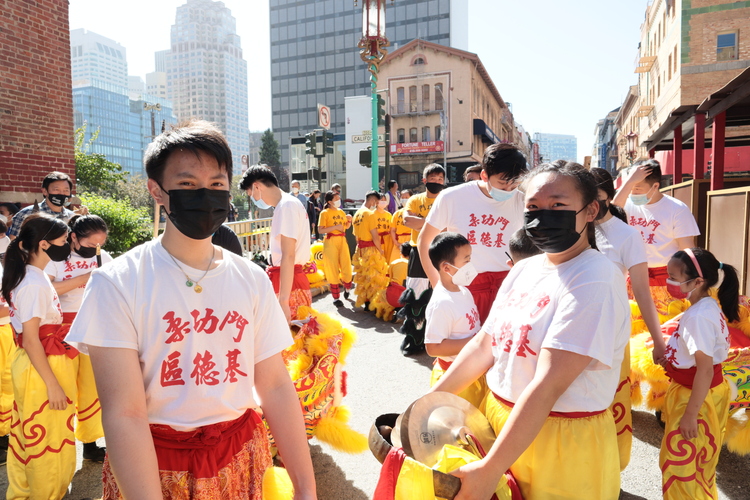
The festival, which is sponsored by the San Francisco Chinatown Merchant Association, took on particular significance this year as dignitaries like Mayor London Breed, Supervisors Aaron Peskin and Ahsha Safai, and Assembly member David Chiu used the occasion to highlight the festival’s cultural traditions while underscoring the realities of the pandemic, which has made the past 16 months especially difficult for Chinatown’s community.
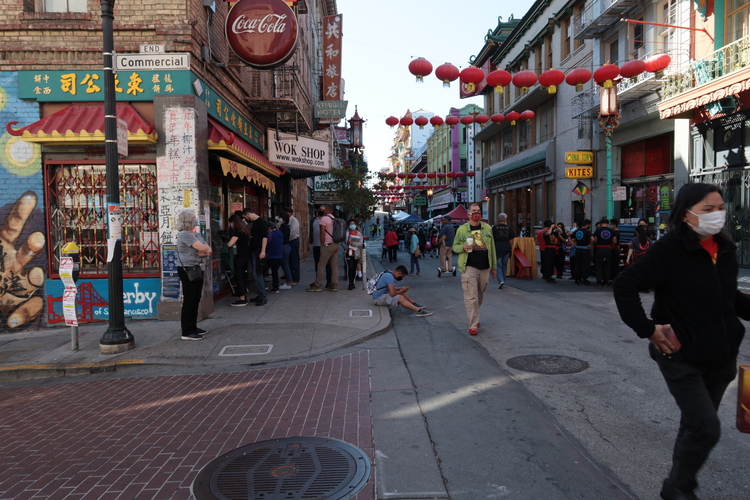
Breed addressed these struggles in her opening remarks at the festival, noting that “Chinatown bore the brunt of the challenges of the pandemic,” referring not only to economic hardships but also to the heightened xenophobia and violence that people of Asian and Pacific Islander descent have experienced during the pandemic.
Peskin meanwhile drew attention to the resiliency of Chinatown and its successes mitigating the COVID-19 crisis. Despite closely shared living quarters, “Chinatown,” Peskin proudly announced, “had the lowest transmission rate in the county and city. It’s the cleanest, safest, and healthiest place,” he continued, “that’s the bounty.”
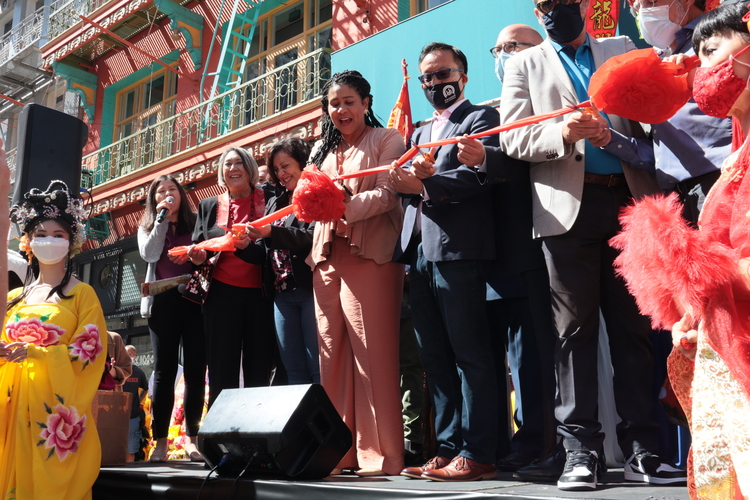
While dignitaries described Chinatown as the heart of San Francisco’s economic recovery, local business owners offered a more cautious outlook. When asked if he was the owner of the legendary Eastern Bakery, which was the first bakery to open in Chinatown in 1924, Orlando Kuhn wryly replied, “Unfortunately, yes, although maybe not for long.” The pandemic, he explained, scared people away, and his business had not fully recovered.
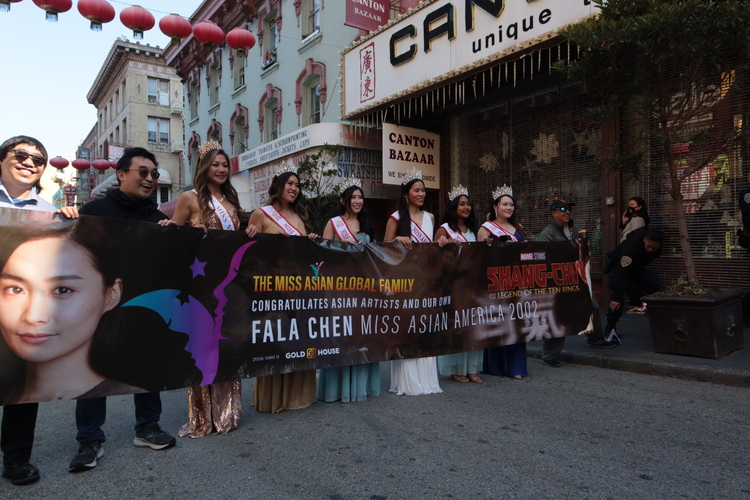
Similarly, Kevin Chan, 52, owner of the Golden Gate Fortune Cookie Factory, noted that sales were low because international visitors had not returned with the easing of pandemic restrictions. He pointed to the store’s entryway where footprints were impressed in the concrete from 59 years of constant use. He wondered when the throngs of tourists would be back.
Chelsea Hung, 30, owner of Washington Bakery and Restaurant fully reopened her establishment but, like Kuhn and Chan, operates with a much smaller workforce. Hung took over the 25-year-old business from her mother, determined to keep it going. She wanted to support her mother’s legacy and be part of the community—an unusual choice, she explained, as many young people in Chinatown have chosen to leave instead of staying to run their parents’ businesses.
Eva Lee, the Director of the Autumn Moon Festival, mentioned the importance of youth for the revitalization of Chinatown. To attract younger crowds, this year’s celebrations included a large number of young performers who showcased their talents in parades, dances, and musical and martial arts ensembles. The festival also debuted local hip-hop artists and rappers, like Son of Paper and Dragon of the West, who connected with audiences through performances that drew on their experiences as Asian Americans.
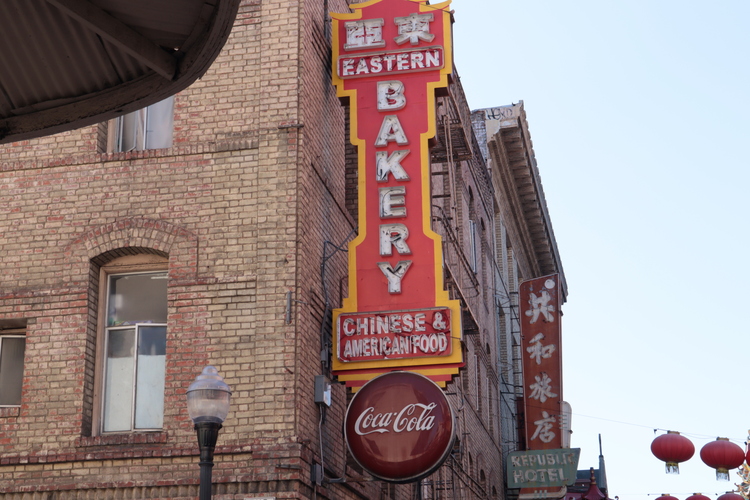
Kyle Shin, who identifies as Chinese-Korean American, explained the origin of his name, Son of Paper, as a tribute to his maternal great-grandmother who came to the U.S. as a “paper daughter.” The Chinese Exclusion Act (1882-1965) prohibited Chinese laborers from immigrating to the U.S. or becoming naturalized citizens so thousands of immigrants, like Shin’s great-grandmother, purchased American birth certificates—a creative strategy of belonging that, as Shin noted, “helps expand the narrative of Asian American experiences in the U.S.”
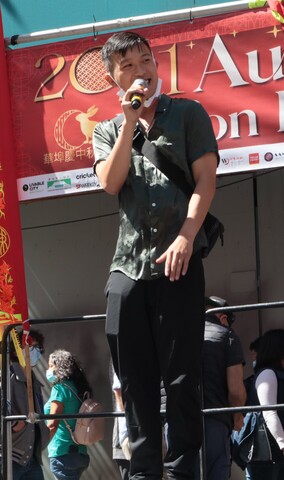
Serena and Winnie, two high school volunteers from the Community Youth Center in Chinatown, remarked on the large turnout of people at the festival, as they managed the traffic so pedestrians could walk safely. Lee corroborated their observations, noting that while the crowd at the festival was smaller than previous years, it still exceeded her expectations. She noted that festival organizers limited the number of street vendors and socially distanced their stalls to comply with pandemic regulations.
The long line of masked customers, more than 30 at a time, waiting outside the Golden Gate Eastern Bakery vividly captured the festival’s atmosphere of celebration and caution. From the opening of a partially cracked door in between two boarded-up windows, an elderly woman handed out packages of mooncakes, delighting customers who finally could taste the harvest and bounty of the Autumn Moon Festival.
